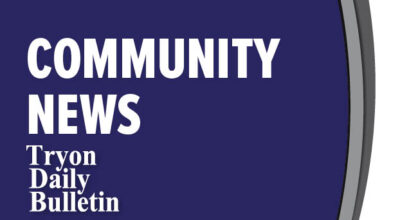A warning for COVID-19 scams issued by U.S. Attorneys office
Published 12:48 pm Tuesday, March 24, 2020
|
Getting your Trinity Audio player ready...
|
On Thursday, March 19, U.S. Attorney Andrew Murray and the FBI issued a warning, urging the public to remain vigilant against COVID-19 scams.
“I encourage everyone to be on heightened alert about potential scams related to COVID- 19,” said U.S. Attorney Murray. “At the request of the United States Attorney General, I have directed federal prosecutors in my office to prioritize the detection, investigation and prosecution of criminal conduct related to COVID-19. We will not allow scammers to profit from this outbreak.”
Possible types of COVID-19 scams are:
- Individuals or businesses selling fake cures for COVID-19.
- Online offers for vaccinations and test kits.
- Phishing emails or texts from entities posing as the World Health Organization (WHO) or the Centers for Disease Control and Prevention (CDC).
- Malware inserted in mobile apps designed to track the spread of COVID-19 that can steal information stored on devices.
- Malicious COVID-19 websites and apps that can gain and lock access to devices until a ransom payment is made.
- Solicitations for donations to fake charities or crowdfunding sites.
Here are some tips to help avoid COVID-19 scams:
- Do not purchase items that purport to cure COVID-19. Currently there are no vaccines, pills, drinks, lotions or any other product available on the market that can treat or cure COVID-19.
- Do not purchase COVID-19 test kits online.
- Do not click on links or reply to texts from unknown sources as these may download malware and viruses to computers or devices.
- Be particularly aware of emails claiming to be from the CDC or WHO, claiming to have vital information about the virus. Instead, go directly to websites for the Centers for Disease Control and Prevention (www.cdc.gov) and the World Health Organization (www.who.int).
- When it comes to donations, do not let a scammer rush you into making a donation. Instead, take the time to do extensive research online.
- Do not make a donation in cash, via gift card, or a wire transfer, and do not provide your banking information or debit card numbers.
Education is the best way to avoid being defrauded by scammers. To learn more about COVID-19 scams and for help with recognizing and avoiding fraud schemes please visit the Federal Trade Commission website. Report suspected fraud to the FBI at www.ic3.gov.
Submitted by Lia Bantavani




